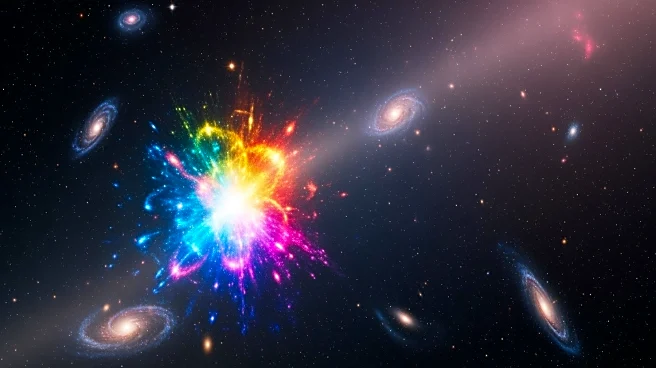What's Happening?
A new proposal for the Big Bang Model has been introduced by scientists, potentially altering the understanding of the universe's origins. Traditionally, the Big Bang Model describes the universe's expansion
from a hot, dense point 13.8 billion years ago, involving a rapid inflation driven by a particle known as the inflaton. The new theory, published in the American Physical Society's Physical Review Journal, suggests that gravitational waves could explain the formation of matter and structure in the early universe, eliminating the need for the inflaton.
Why It's Important?
This new model could revolutionize cosmology by providing an alternative explanation for the universe's rapid expansion and the formation of its structure. If gravitational waves are indeed responsible, it could lead to a deeper understanding of the universe's fundamental forces and the nature of space-time. This shift in perspective may impact future research directions and the development of new technologies to study cosmic phenomena.
What's Next?
Further investigation into gravitational waves and their role in the early universe is expected. Researchers may focus on detecting these waves and analyzing their properties to validate the new model. This could involve collaborations across international scientific communities and the use of advanced observatories and instruments.
Beyond the Headlines
The proposal challenges long-held beliefs in cosmology, prompting discussions about the nature of scientific theories and the process of scientific advancement. It highlights the dynamic nature of scientific inquiry, where established models can be re-evaluated and refined in light of new evidence.









